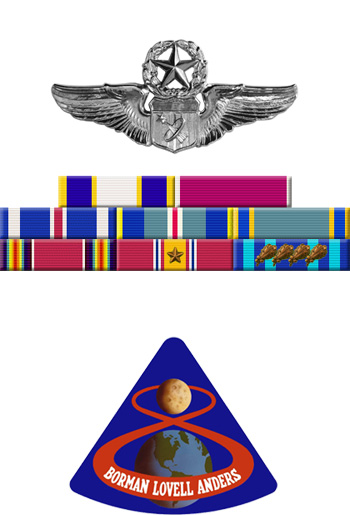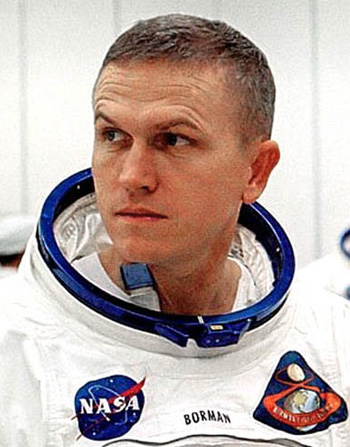
|
Frank Borman |
 |
|||
| Rank, Service | ||||
Colonel O-6, U.S. Air Force |
||||
| Veteran of: | ||||
|
||||
| Tribute: | ||||
Frank Borman was born on March 14, 1928, in Gary, Indiana. He entered the U.S. Military Academy at West Point in 1946, and graduated with a commission as a 2d Lt in the U.S. Air Force on June 2, 1950. After completing Undergraduate Pilot Training and F-80 Shooting Star Combat Crew Training, Borman served with the 44th Fighter Bomber Squadron of the 18th Fighter Bomber Group in the Philippines from January 1952 to November 1953. He was then assigned as an instructor pilot with the 3552nd Flying Training Squadron at Moody AFB, Georgia, from November 1953 to August 1955, when he transferred to the 3605th Combat Crew Training Squadron of the 3600th Combat Crew Training Group at Luke AFB, Arizona, where he served until June 1956. Borman completed an Air Force Institute of Technology assignment in June 1957, and then served as an instructor at the U.S. Military Academy until August 1960. He next completed Test Pilot School and then served as an instructor at Edwards AFB, California, until he was selected as a NASA Astronaut in October 1962. Col Borman was back-up command pilot for Gemini IV before going into space as command pilot aboard Gemini VII from December 4-18, 1965. His final space flight was as mission commander of Apollo 8, the first mission to leave Earth's orbit and travel to the moon, from December 21-27, 1968. Col Borman retired from NASA and the U.S. Air Force on June 30, 1970. He then joined Eastern Airlines and retired in 1986. |
||||
|
||||

